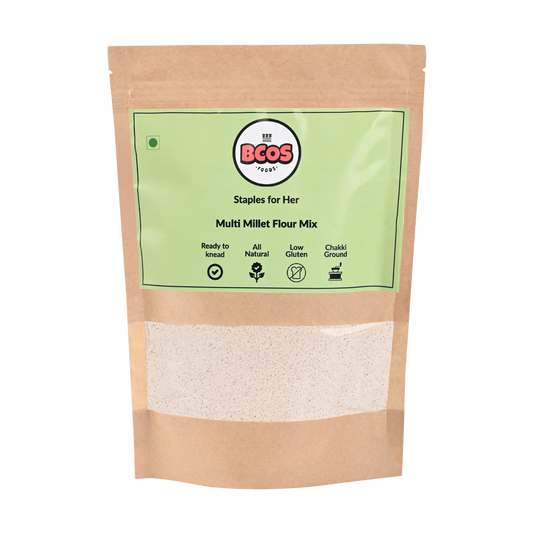Low sex drive or also called low libido in women has many potential causes, which include stress, anxiety, negative body image, and an underlying medical problem like PCOS. Learn how PCOS can affect your sex drive and what you can do about it.
PCOS and Sexual Intimacy
Sexual intimacy has long been recognized as an essential part of human life. From burning calories and reducing cardiovascular risk to improving memory and boosting the immune system, science tells us that sex is beneficial to our health. But sex and romance don’t always come easy, especially in women with chronic conditions like PCOS.
If you think PCOS is messing with your libido and sexual satisfaction, you are not alone. Infrequent periods, hirsutism, acne, and weight gain are some of the tell-tale signs of PCOS, a condition that increases androgen levels and causes hormone imbalance. The physical and mental changes caused by high testosterone levels can mess with a woman’s sex life.
If your lack of interest in sex is distressing and is interfering with your relationship, talk to your PCOS care team. Know that several approaches are available to help you and your partner.
How PCOS Affects Your Sex Drive
Our understanding of sex and the nature of sexual desire have evolved and expanded since Freud’s time. Modern women are persuaded to embrace their femininity and to feel good about themselves. But that’s quite a challenge if you’re dealing with symptoms of PCOS such as persistent acne, belly fat, and excess facial and body hair. Below are some of the ways PCOS affects your libido:
Body image issues
For many women, their intimacy issues are impacted by their body image and their own self-consciousness. A study involving 12,000 adults found that women are more likely to struggle with body dissatisfaction than men and having PCOS increases that risk. Commonly reported sexual problems in women are lack of sexual interest and inability to reach orgasm.
Women with PCOS often have a negative perception of their body image, described as:
- Perceived loss of femininity
- Feeling less sexually attractive
- Self-consciousness and dissatisfaction with appearance
Hormonal Contraceptives
Studies on the effects of hormonal birth control on sexual function have conflicting results. While most studies found that some forms of hormonal contraception have no impact on sexual functioning, other women experienced either lack of interest in sex or improved sexual functioning. Women on birth control pills are more likely to experience decreased libido, arousal, and pleasure, while hormonal IUDs are associated with more sexual desire and lower levels of sexual dissatisfaction.The bottom line is that your choice of contraceptives to treat your PCOS may negatively or positively impact your libido. If you have concerns about your birth control method and how it’s affecting your sex drive, talk to your healthcare provider.
Fertility Problems
PCOS is the leading cause of anovulatory infertility in women. Being overweight or obese exacerbates this problem. The risk of anxiety, distress, and depression are high in women who are struggling to get pregnant. Couples dealing with infertility may suffer from anxiety-related sexual dysfunction and other marital conflicts.
Hormonal Imbalances
Women with PCOS often have too high androgen levels. Researchers believe that this can throw a woman’s hormones out of whack and cause low libido and low sexual satisfaction.
In some women, their sexual drive remains the same but they struggle with sexual dysfunction such as dyspareunia (pain during sex) and anorgasmia (difficulty reaching orgasm).
Irregular Periods
The hormone imbalance in PCOS can cause irregular menstruation. Most women with abnormal periods find it difficult to track their cycle, which makes planning for a romantic evening a challenge. Some women with PCOS experience bleeding between periods or with sexual intercourse. Others bleed heavier than normal which could last for weeks without medical intervention.
What can be done?
- Manage your PCOS: Losing weight through diet and exercise and changing other lifestyle factors can reduce PCOS symptoms and normalize your menstrual cycle.
- Avoid comparisons: The habit of comparing yourself to others (whether online or in person) can actually increase body dissatisfaction. People come in all shapes and sizes, so it’s important to work on your self-love, self-acceptance and confidence.
- Build your sexual confidence: Pay attention to your feelings and needs. Explore your sexual interests and communicate your sexual desires with your partner.
- Seek emotional support from your partner: Women with partners who are critical of their partner’s appearance are more likely to have a negative body image. A partner who understands your needs to feel desirable or loved boosts your sexual confidence, which can lead to higher relationship satisfaction.
Let's Reinvent PCOS Care Together! Try our products from BCOS Foods to get charge of your PCOS today and lead a happy healthier life ♥






